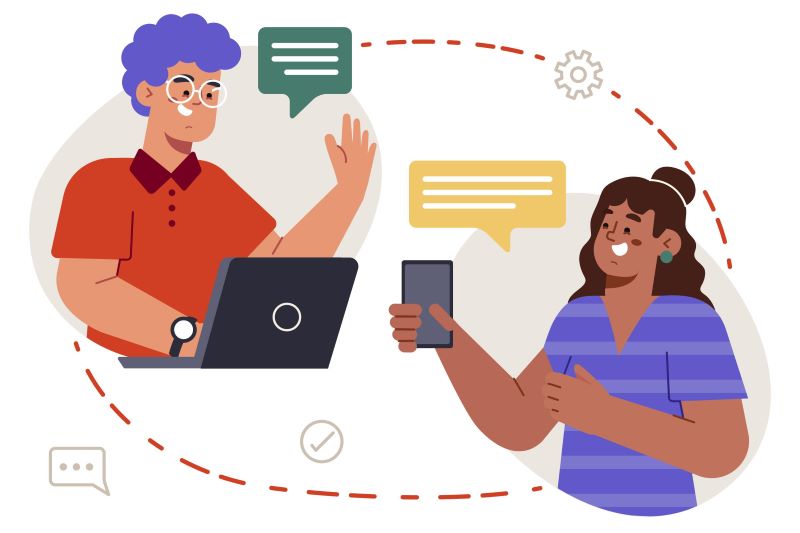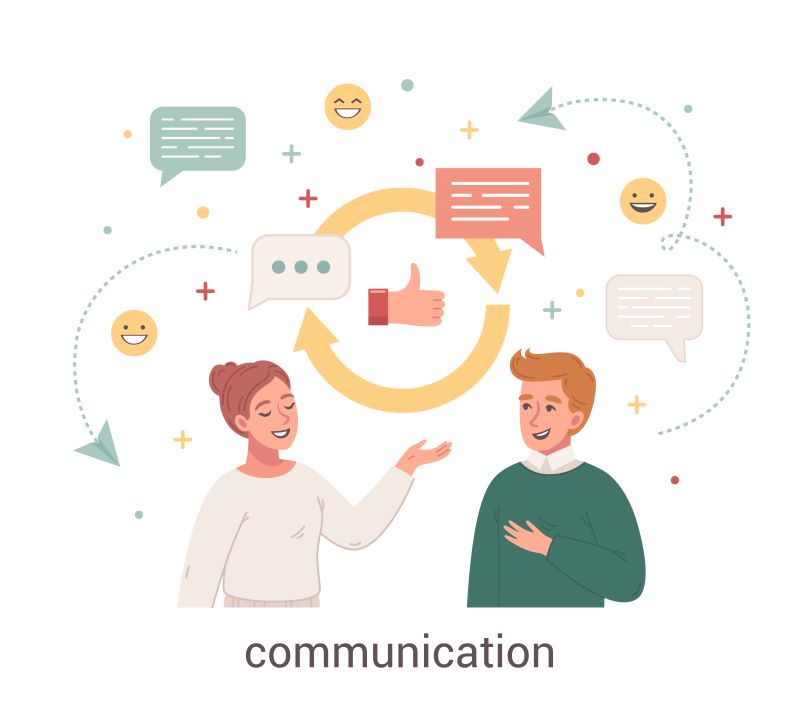Mastering Feedback in Communication
The key to success in the dynamic modern workplace is having effective communication abilities. Fostering employee growth, development, and collaboration requires the capacity to deliver feedback in a straightforward and constructive way. This comprehensive blog dissects various modes of communication, emphasizes the importance of effective business communication, and delves into the intricacies of feedback exchange. We will also look at what feedback actually means, how to communicate effectively, and how research, data, and real-world examples from India can help develop communication skills.
The Vital Role of Effective Feedback in Communication
Effective communication is characterized by the interchange of ideas, information, and feedback in a way that is readily comprehendible by all participants. It serves as the vital force behind the success of any organization, propelling both productivity and innovation.

Types of Communication:
- Verbal Communication:
Verbal communication includes the exchange of spoken words, which can occur in person or via digital platforms such as video conferencing.
- Non-Verbal Communication:
Accurate communication relies heavily on non-verbal clues including tone of voice, body language, and facial expressions.
- Mass Communication:
Mass communication includes the dissemination of information to a large audience using media platforms such as social media, radio, and television.
Feedback in Communication: The Catalyst for Growth
Defining Feedback: Feedback is a dynamic process that people or groups use to communicate information or emotions. It is essential for modifying behavior, enhancing output, and encouraging teamwork. Feedback offers understanding, validation, and helpful criticism on a range of communication-related topics, including the effectiveness and clarity of messages as well as verbal and nonverbal abilities.

The Art of Providing Feedback in Communication
- Active Listening:
Active listening is an essential component of effective communication, requiring the recipient to not only perceive the verbal expressions but also discern the underlying emotions and intentions.
- Clarity and Conciseness:
By ensuring messages are readily understood, clear and concise communication reduces the likelihood of misunderstandings.
- Empathy:
Through recognizing the emotions and points of view of others, empathy facilitates more profound connections.
Positive Feedback Communication:
A valuable instrument for reinforcing desired behaviors and communication skills is positive feedback. The approach emphasizes accomplishments and strengths, thereby inspiring people to sustain their constructive contributions.
Positive Feedback Communication Examples
- Appraisal and Recognition:
Such positive feedback is frequently employed in the business world during performance assessments and recognition programmes to acknowledge and reward outstanding communication abilities and achievements.
- Team Collaboration:
It is highly beneficial for teams as it cultivates an environment that promotes trust, cooperation, and efficient communication. Collaboration is enhanced by recognizing and appreciating the contributions of team members.
- Enhancing Public Speaking:
Offering encouragement to a worker who has become more proficient in public speaking might help them feel more confident and motivated to keep improving.
- Effective Presentation:
Positive feedback regarding a presentation’s impact and clarity might inspire people to improve their communication abilities even more.
Barriers to Effective Feedback:
- Fear of Conflict:
For fear of escalating a disagreement or destroying a relationship, many people refrain from giving comments.
- Lack of Skill:
It may be necessary to acquire and hone the ability to offer constructive criticism. Numerous individuals are unprepared to provide constructive feedback.

Building a Feedback Culture
- Feedback Training: Businesses can fund training initiatives that give staff members the abilities to give and receive feedback in an efficient manner.
- Continuous Improvement: Fostering a culture of continuous feedback enables people and groups to adjust and develop in response to shifting demands.
Real-World Examples from India
In India, as in the rest of the world, organizations recognize the value of effective feedback communication. Furthermore, real-world examples from prominent companies and research findings demonstrate that fostering a culture of feedback contributes to overall success and employee satisfaction. By mastering the art of providing effective feedback through communication, organizations and individuals can create a more dynamic and productive workplace that propels them toward their goals.
- Tata Group:
The Tata Group, a renowned Indian multinational conglomerate, prioritizes feedback and efficient communication. They employ a range of communication channels, such as town hall meetings and leadership programs, not only to promote constructive and transparent discourse but also to foster meaningful engagement among team members.
- Infosys:
As an industry leader in IT services on a global scale, Infosys integrates feedback into its organizational culture. Initiatives such as the “Leadership Institute” have been implemented with the aim of augmenting the employees’ capacity for effective communication.
- Indian Startups:
Effective communication and feedback are core values that numerous Indian enterprises place emphasis on right from their inception. They recognize that fostering an environment of transparency and ongoing enhancement is vital for expansion.
Research and Statistics from India:
A National Association of Software and Service Companies (NASSCOM) survey found that successful feedback and communication are essential for success in India’s IT and software services sector. Teams with effective feedback and communication procedures routinely outperformed their peers, according to the study.
Conclusion
Feedback and efficient communication are vital in today’s corporate environment. These abilities extend to mass communication in a variety of formats and go beyond verbal and nonverbal communication. Growth, cooperation, and creativity are fostered by accepting both constructive criticism and encouraging remarks. Like everywhere else in the globe, organizations in India understand the need of providing constructive criticism. Research results, in addition to real-world examples from well-known businesses, illustrate how fostering a feedback culture not only enhances overall success but also significantly boosts employee satisfaction. Organizations and individuals who have mastered the art of effective communication and providing feedback can create a more dynamic and productive workplace that helps people achieve their goals.
Empower Your Career: Start your DEIJobs journey towards a brighter future.
DeiJobs isn’t just a job portal; it’s a movement. It actively advocates for and promotes the importance of inclusivity, equality, and diversity in the workplace, encouraging employers to rethink their hiring practices.


